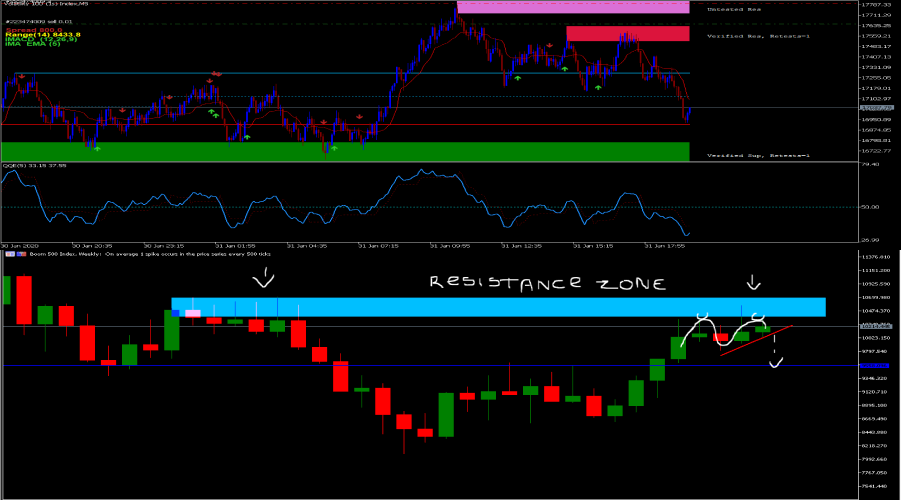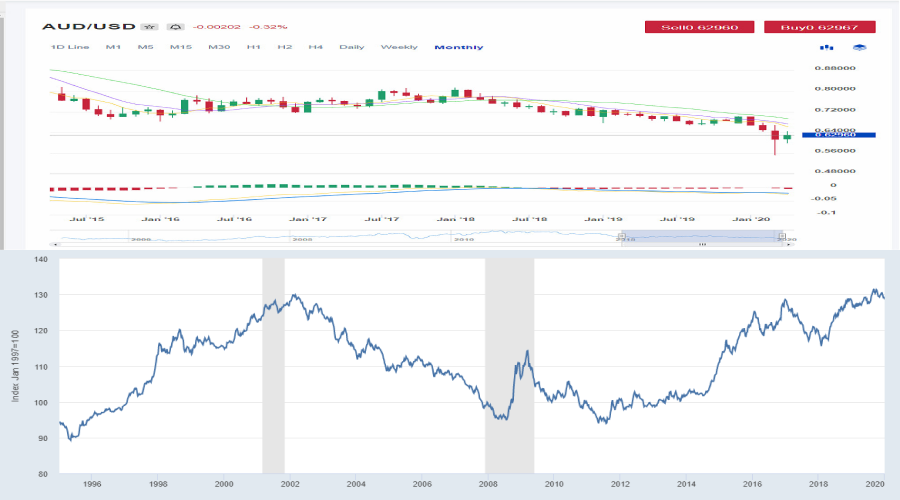What are indices and how to trade them?

If you have just recently started investing in trading, there might be many terms, methods, and techniques unknown to you. Trading is an effective way of earning more in less time. In the right trading market, investing in the right stock and using the right strategies can significantly benefit an individual.
Indices are an estimation of the price performance of shares from a single exchange. In simpler terms, they are lists that explain the leverage, margin, and spread of one instrument.
Indices Trading
Indices are one of the ideal markets to trade-in. They have more detailed charts which makes it easy to decide on which stocks are worth investing in. They are also easier to apply trading strategies on.
In this trade, an index is used. Effortlessly, the index chooses some companies and shows their average share prices. The bigger the company selected, the larger the impact is going to be on the index.
Hence, trading in the market of Indices is known as Indices Trading.
How Are Indices Calculated?
The market capitalization of their organizations determines most stock exchange indices. This strategy gives more significant weightage to larger cap organizations, which implies their performance will influence an index's value more than lower cap organizations.
Be that as it may, some famous lists – including the Dow Jones Industrial Average (DJIA) – are price-weighted. This technique gives more significant weightage to organizations with higher share costs, implying that their values will significantly affect the current price of the index.
Types Of Indices
The different types of Indices are:
Capitalization
These are a comprehensive range of indices that speak to the market capitalizations of the organizations making up the list.

Fixed Income
Measure the performance of the security market and the transient money market.
Sector
These are a range of indices that benchmark the performance of specific areas of the share market.
Strategy
These indices mirror the performance of rule-based investment methodologies.
Volatility
Volatility acts as a marker of financial specialist feeling, estimating the degree of near-term market instability.
Some of the most popular indices are as follows:
- Dow Jones, which is in the industrial market.
- S&P 500, which represents the top 500 companies in the US.
- NASDAQ 100, which is in the tech market.
- DAX 30, which measures the German companies.
Why Should You Trade Indices?
Stock exchange indices are exchanged in large volumes and are well known in the investing network. They are not just an extraordinary place to begin for beginners but are also traded by experts daily. Indices are incredible for informal investors and long-term brokers as well.
Here are some of the advantages of exchanging the significant indices:
- They are profoundly fluid, which gives traders tight spreads and exact chart designs.
- They give volatility. Indices speak to the strength of the economy they track; changes in the economy can cause the index unpredictability to build, which prompts incredible trading openings.
- Indices permit traders to wager on the cost of the index going here and there. They prompt more open doors as traders can catch the potential gain and disadvantage of a development.
- There are distinctive indices for various businesses and areas, so traders can pick up performance lists that coordinate with their preferences.
How To Make Money With Trading Indices?
Indices are exchanged precisely the same way as forex or stocks. You open trade in one bearing, and you bring in cash if the cost goes toward that bearing. If the value comes against you, at that point, you may lose some money. Since indices trend a ton, the best procedures to trade them are trend following strategies.
Some traders like to utilize moving averages on trading frameworks. At the point when the cost is moving, hang tight for a pullback on the moving averages. By then, you should trust that the price will begin to recover from the withdrawal. Begin moving onward following the trend direction.
At this point, open your trades. And afterward, leave the price move alone. More often than not, it goes on the required trade course. What's more, after it makes another peak, that is an ideal opportunity to close the trade and put some money in your pocket.
What Moves Indices Markets?
An index moves as its constituents move, whether they be market caps, fundamentals, or only the stocks' costs. The technique used to compute the index can likewise lead to various outcomes.
Indices rates are affected by a couple of things, for the most part;
- The Index Constituents. The organizations that make up an index will influence its cost. The most significant contributors to the list should be consistently be observed as they will move the list the most.
- Economic Data. If, for instance, the index generally depends on US stocks like the S&P 500, then financial information on the US economy will undoubtedly influence the index's cost. The information that financial experts will take a look at includes inflation, joblessness, stock levels and treasury yields.
- Governmental Issues. Trade wars and guidelines can affect indices. For the most part, indices will profit by discussions of free trade, de-regulations, and lower taxes.
Indices Trading Tips
Indices trading can be fulfilling and offer traders many opportunities. Like any resource you choose to trade, a decent comprehension of the elements which can affect Indices price developments is significant.
Some of the indices trading tips are as follows;
Understanding Market Correlation
Understanding market correlations between indices costs and other markets is quite crucial because indices are essentially individual stocks.
Share markets are what affects the price movements of the indices the most. If share prices go through significant changes, it will affect indices price, especially if the affected share is a considerable portion of your indices.

At this point, research and investigation are critical. One should ensure that they comprehend the chosen index's component portions and how events in correlated markets can affect these.
Using Market Data To Your Advantage
When trading Indices, financial information can be a gigantic driver of performance, and it is vital to your trading achievement that you can distinguish and foresee the market events which may hasten price developments.
For this, utilizing an economic schedule can be unfathomably helpful to your trading plan as it will permit you to look ahead over the medium and longer-term to information releases, which could affect your position.
Position Trading And Trading With The Trend
Since many significant Indices face comparable difficulties, events, and market responses, position trading, where a trader hopes to open a position and hold, can be a compelling strategy.
Trading with the trend by utilizing longer-term charts related to specialized tools, for example, indicators, drawing devices, and pattern analysis, may help you in building up a position trading procedure that suits your objectives.
A Common-Sense Approach To Risk Management
Similarly, as with any economic market or venture, there is an inherent danger in trading Indices. While the instability in index markets might be reasonably not the same as others, more flighty markets, similar to Shares or Cryptocurrencies, an intense risk management procedure is vital to your success.
You can utilize the integral tools available on applications or websites such as the TraderPro platform to stop losses, following stops, and limit requests to help manage your risk-taking craving and lock in profits.
How To Trade Indices With CFD
Trading Indices is an approach to pick up performance to worldwide or regional markets without investigating individual companies' performance. Famous financial trading indices ordinarily furnish traders with a deep liquidity level, extended trading hours, and tight spreads.
One of the least demanding and most mainstream approaches to trading indices is with CFDs (contracts for difference). A contract for difference is a sort of agreement between a trader and a merchant. It attempts to benefit from the price contrast among opening and closing the trade.
Utilizing CFDs to trade indices will permit you to go long or short the market without managing stock trades. You exchange directly with your CFD dealer. Regardless of whether you have a positive or negative perspective on the index figure and forecasts, you can attempt to benefit from either the upward or descending future price movements.
Indices are comprised of a broad cross-section of liquid trading instruments, and indices are amazingly well known with CFD brokers around the world over.
In conclusion, indices trading is an easy method of trading, especially fitting for a beginner. It helps eases a person's hand in trading and helps them learn different tricks and strategies. With simple techniques and a keen eye, one can learn and earn a lot from this kind of trading before stepping into a more competitive market.










